There’s a certain rhythm to life in the bush — one that can’t be rushed or predicted. And for many guests at Shumbalala Game Lodge, the most meaningful moments aren’t always the ones that make it onto Instagram. A real safari is about more than ticking animals off a list. It’s about the process — the waiting, the watching, the wondering.
Recipe: Shumbalala Game Lodge’s Famous Homemade Rusks
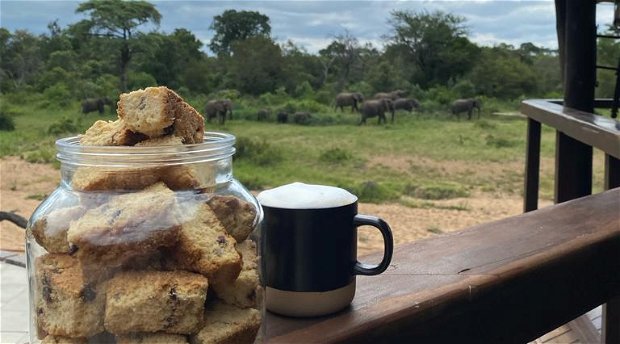
At Shumbalala Game Lodge, we're passionate about creating experiences that embody the authentic spirit and essence of our surroundings. A quintessential part of this experience is the delight of indulging in our famous homemade rusks, a traditional South African treat that brings a sense of homeliness and comfort with every bite.
In the heart of our kitchen, we embrace the philosophy of homemade goodness. All our baked delights are crafted here, ensuring that our guests are treated to the freshest ingredients, prepared with love and care. Our rusks are a prime example of this dedication. Baked with care, they are a tribute to the warm hospitality of South Africa and our rich cultural heritage.
'Rusks' or 'beskuit', as they are affectionately known locally, hold a special place in the heart of South African culture. Born out of necessity for long journeys and periods without fresh bread many years ago, they have evolved into a much-loved snack, perfect for dunking in a morning cup of coffee or tea amidst the serene beauty of the bushveld.
We warmly invite you to bring a taste of Shumbalala Game Lodge and the enchanting South African wilderness into your own kitchen with this cherished recipe. Whether savoured in the peaceful early morning hours as the sun rises, or as a comforting snack to brighten your day, these rusks are bound to infuse your surroundings with a little piece of our lodge’s and South Africa’s heartwarming charm.
Ingredients:
- 600g self-raising flour
- 300g Weetbix biscuits, crushed
- 100g coconut powder
- 3 tsp baking powder
- 500g butter
- 1 cup sugar
- 2 ½ tbsp vanilla extract
- ½ cup pumpkin seeds
- ¼ cup black sesame seeds
- ¼ cup white sesame seeds
- 2 eggs
- 2 cups Inkomazi (soured milk)
Method:
1. Preheat the oven to 180°C (356°F). Grease or line bread-baking tins.
2. Melt the butter in a saucepan.
3. In a bowl, combine the melted butter, sugar, inkomazi, and vanilla extract. Beat in the eggs.
4. In a separate bowl, mix together the self-raising flour, crushed Weetbix, coconut powder, baking powder, and seeds.
5. Gradually add the dry ingredients to the wet mixture, stirring until well combined.
6. Pour the mixture into the prepared baking tins.
7. Bake for 40-45 minutes, or until golden brown.
8. Remove from the oven and let cool. Once cooled, cut into desired sizes.
9. Place the rusk pieces on a baking tray and dry in the oven at 50°C (122°F) overnight.
Storage: Store in an airtight container.
Feel free to add nuts or dried fruit to the mixture for variation.
As you enjoy these homemade rusks, may each bite bring a sense of connection to our beautiful wilderness and the warm hospitality of our lodge.
Share your rusk-making adventures with us by using the hashtag #Shumbalala on social media – we're excited to see a piece of our tradition come to life in your kitchen. Happy baking from the Shumbalala Game Lodge family!
Further Reading
If you’re planning your honeymoon and find yourself torn between golden beaches and something a little different, you’re not alone. The beach is a classic choice — but we’re here to let you in on a little secret: A honeymoon in the bush is something magical. And at Shumbalala Game Lodge, in the heart of the Thornybush Private Nature Reserve, it might just be the most romantic escape you never knew you...
At Shumbalala Game Lodge, some mornings come with coffee and a view. Others come with coffee and elephants. You never quite know which — and that’s part of the magic. The birds are calling, the air is crisp, and the day begins slowly, just as it should in the bush. Then, through the thickets, the unmistakable sound of movement. A soft crackle of leaves, the low rustle of branches — and then,...

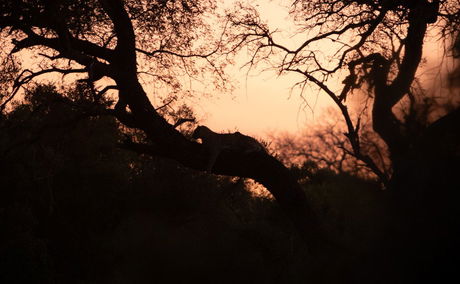

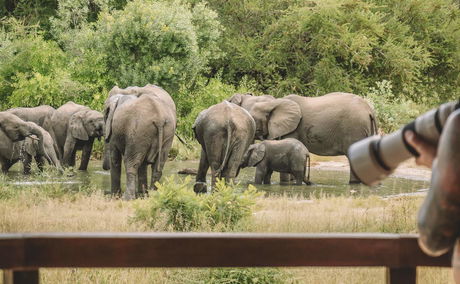
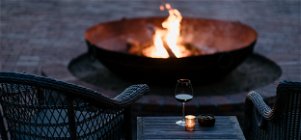
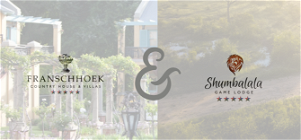
Share This Post